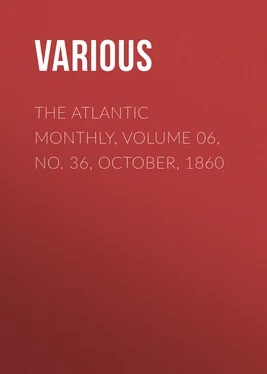Конец ознакомительного фрагмента.
Текст предоставлен ООО «ЛитРес».
Прочитайте эту книгу целиком, купив полную легальную версию на ЛитРес.
Безопасно оплатить книгу можно банковской картой Visa, MasterCard, Maestro, со счета мобильного телефона, с платежного терминала, в салоне МТС или Связной, через PayPal, WebMoney, Яндекс.Деньги, QIWI Кошелек, бонусными картами или другим удобным Вам способом.
Bernini, being asked what was the most beautiful statue in Rome, replied, "That of Pasquin." This reply the sensible Milizia taxes with affectation,—saying, that, although an artist may discover in the work some marks of good design, it is now too maimed to pass for a beautiful statue. Possibly Bernini was thinking of his own works in comparison with it.
Andreas Schott,—who published an Itinerary of Italy about the beginning of the seventeenth century, copies this account, and adds,—"At present this custom is prohibited under the heaviest penalties."
Mrs. Piozzi, in her amusing Journey through Italy , ii. 113, quotes these verses and gives a translation of them which shows that she quite mistook their point. In spite of her quoting Latin, Greek, and even on occasion Hebrew, her scholarship was not very accurate or deep.
The Historie of Guicciardin, reduced into English by Geffray Fenton. 1579. p. 308. Another epigram of barbarous bitterness against Alexander refers, if we understand it aright, to one of the gloomiest events of his pontificate, the murder of his son Giovanni, Duca di Gandia, by his other son, Caesar Borgia. Giovanni was killed at night, and his body was thrown into the Tiber, from which it was recovered the next morning.
Piscatorem hominum ne te non, Sexte, putemus,
Piscaris natum retibus ecce tuum."
"Lest we should not fancy you, O Sextus, a fisher of men, you fish for your own son with nets."
Vasari relates, that Michel Angelo, when he was making the bronze statue of Julius, at Bologna, having asked the Pope if he should put a book in his left hand,—"No," replied the fiery old man, "put a sword in it, for I know not letters": " Mettivi una spada, che io non so lettere. "
At the beginning of his pontificate, upon occasion of Leo's taking possession of the Lateran with a solemn procession, an arch of triumph was erected at the bridge of Sant' Angelo, which bore an inscription worthy of the tailor's successor:—
"Olim habuit Cypria sua tempera, tempora Mavors
Olim habuit, sua nunc tempora Pallas habet."
"Venus once had her time, Mars also has
had his, but now Minerva rules."
In Murray's Handbook for Rome , a book for the most part of great accuracy, there is a curious blunder in the account of Pasquin. It is said, that, "on the election of Pope Leo X., in 1440, the following satirical acrostic appeared, to mark the date MCCCCXL:—' Multi caeci cardinales creaverunt caecum decimum (X) Leonem: 'Many blind cardinals have created a tenth blind Lion.'" Now in 1440 Leo was not born, and no Pope was chosen in that year. Leo was not made Pope till 1513, and the acrostic has apparently nothing to do with the date of his accession to the pontificate.
One of those copies was formerly in the Royal Library at Munich, and sold as a duplicate. The other has the bookplate of the Baron de Warenghien. Colonel Stanley's copy sold for £11 lls. The book was printed at Basle, by Jean Oporin. See Clément, Bibl. Cur. Hist, et Crit. , vii. 371. See also, for an account of it, Salleugre, M.m. de Litt. , ii. 6, 203; and Schelhorn, Amoen. Lit. , iii. 151.
An entertaining and curious account of Curio and his family is to be found in a commemorative oration delivered in 1570 before the Academy of Basle by Stupanus, and printed by Schelhorn in Amoen. Lit. , Tom. xiv.
In two or three of the dialogues Hutten is introduced as one of the speakers; and several of the poetic epigrams are ascribed to him by name.
In Luther's Table-Talk , he says, "Whoso in Rome is heard to speak one word against the Pope received either a Strappecordo or is punished with death, for his name is Noli me tangere. " Pasquin himself has hardly said a shrewder saying than this. Noli me tangere is the name under which Pius IX. pleads against the diminution of his temporal power, while he threatens his opponents with the Strappecorde.
Lectures upon Shakespeare and other Dramatists , ii. 90.
Novaes, x. 56. Artaud de Montor, Hist. des Pont. Rom. , v. 523.
Vita d' Innocenzio X. , dal Cav. Ant. Bagatta.
Whatever it may be, it is not "the homoeopathic form of the transmutative hypothesis," as Darwin's is said to be, (p. 252, Amer. reprint,) so happily that the prescription is repeated in the second (p. 259) and third (p. 271) dilutions, no doubt, on Hahnemann's famous principle, with an increase of potency at each dilution. Probably the supposed transmutation is per saltus . "Homoeopathic doses of transmutation," indeed! Well, if we really must swallow transmutation in some form or other, as this reviewer intimates, we might prefer the mild homoeopathic doses of Darwin's formula to the allopathic bolus which the Edinburgh general practitioner appears to be compounding.
Vide North American Review , for April, 1860, p. 475, and Christian Examiner , for May, p. 457.
Page 188, English ed.
In American Journal of Science , July, 1860, pp. 148, 149.
In Contributions to the Nat. Hist. of U. S. , Vol. i. pp. 128, 129.
Contr. Nat. Hist. U.S. , Vol. i. p. 130; and Amer.
Journal of Science , July, 1860, p. 143.












